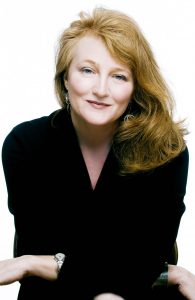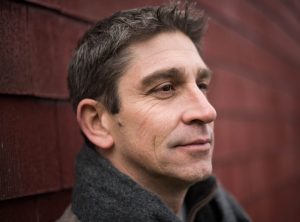

The idea of home is, for Richard Blanco, as elusive as the definition of love.
Born in Madrid to a Cuban family that would soon after immigrate to the United States, Blanco grew up in a “tight-knit,” working-class Cuban-exile community in Miami. At 5 years old, he was already aware of his trio of origin stories — he “yearned” for the America he saw on television, and so wished to return to the country of his birth that he acquired the nickname “Little Spaniard.”
“Watching ‘The Brady Bunch,’ I thought that was any family north of Miami,” Blanco said. “I took my Cuban culture for granted because it was around me every day.”
In a week titled, “Grace: A Celebration of Extraordinary Gifts,” the poet, now the author of 12 books, will appear in conversation with Krista Tippett, founder and CEO of The On Being Project, as well as host and co-curator of Week Seven, at 10:45 a.m. Wednesday, August 7 in the Amphitheater, as part of the Recognition Day celebration of the CLSC Class of 2019.
After publishing three prize-winning books of poetry — City of a Hundred Fires, Directions to The Beach of the Dead and Looking for The Gulf Motel — all braided with themes of heritage, place and identity, Blanco received the call from the White House that would make him “finally (feel) like an American.”
In 2012, President Barack Obama selected Blanco to serve as the fifth presidential inaugural poet in United States history. Among the brief roster, which includes Robert Frost and Maya Angelou, Blanco is the youngest, and the first Latino, immigrant and gay person to earn the distinction.
Tippet called Blanco “one of our great American poets” — his newest book, How to Love a Country, is, according to her, a “juxtaposition of beautiful language and deep thought and real life.”
“Poetry is a way of taking care with language and using words to say the deepest and truest things, the things we want to give voice to together,” she said. “Poetry is really rising up culturally and globally, and among younger people. (It’s) the way to talk about the things we want to talk about that we don’t seem to be able to talk about in the old traditional places. I’m very excited about him being here.”
For Blanco, it is inside interactions with readers and “the act of creation itself” that he finds “the miracle of grace.” He recalled a moment when, after participating in a reading to honor the victims of the Pulse nightclub shooting in Orlando, Florida, a woman stopped to thank and hug him through tears. Her daughter was one of the 49 murdered on June 12, 2016.
Blanco insisted that it was he who should be thanking the mother. Here was a “transference of energy,” a tangible “circularity” to the creation and consumption of his art. It amazed him.
“When that kind of (connection) happens is when I feel that what I do is real,” Blanco said. “It’s the completion of the poem, in a way. When readers own it and reflect on their own lives and see themselves mirrored in an experience that I’m trying to convey honestly and beautifully — that keeps me going.”
Grace visits when he writes, too, usually when he is “just about to give up.” In the midst of this twin sense of “timelessness and connectedness,” he discovers something “deep and eternal in him,” and sometimes breaks down in tears.
“I’m not in control,” he said. “I’m a vehicle, I’m a vessel and I’ve been graced by the powers that be to deliver this. It’s then that usually the poem starts writing itself.”
For Blanco, that “bundle of grace energy” is then gifted forward through the poem to the reader — and also from poet to poet. When Blanco is angry, he turns to Patricia Smith. When he is in search of language that is “understated, controlled,” he reads Elizabeth Bishop. And when he wants to “go back to music,” he reaches for T.S. Eliot. He cites Sandra Cisneros, José Martí and Federico García Lorca as inspirations, but cautions against reading only those who “you see yourself in.”
“It’s the surprise of reading that which you don’t expect to see yourself in that is also very powerful,” he said. “At the heart of (their poems), it is very much the same.”
Although How to Love a Country addresses lynching, immigration and contemporary gay love, Blanco “never considered (himself) a political poet.” Growing




